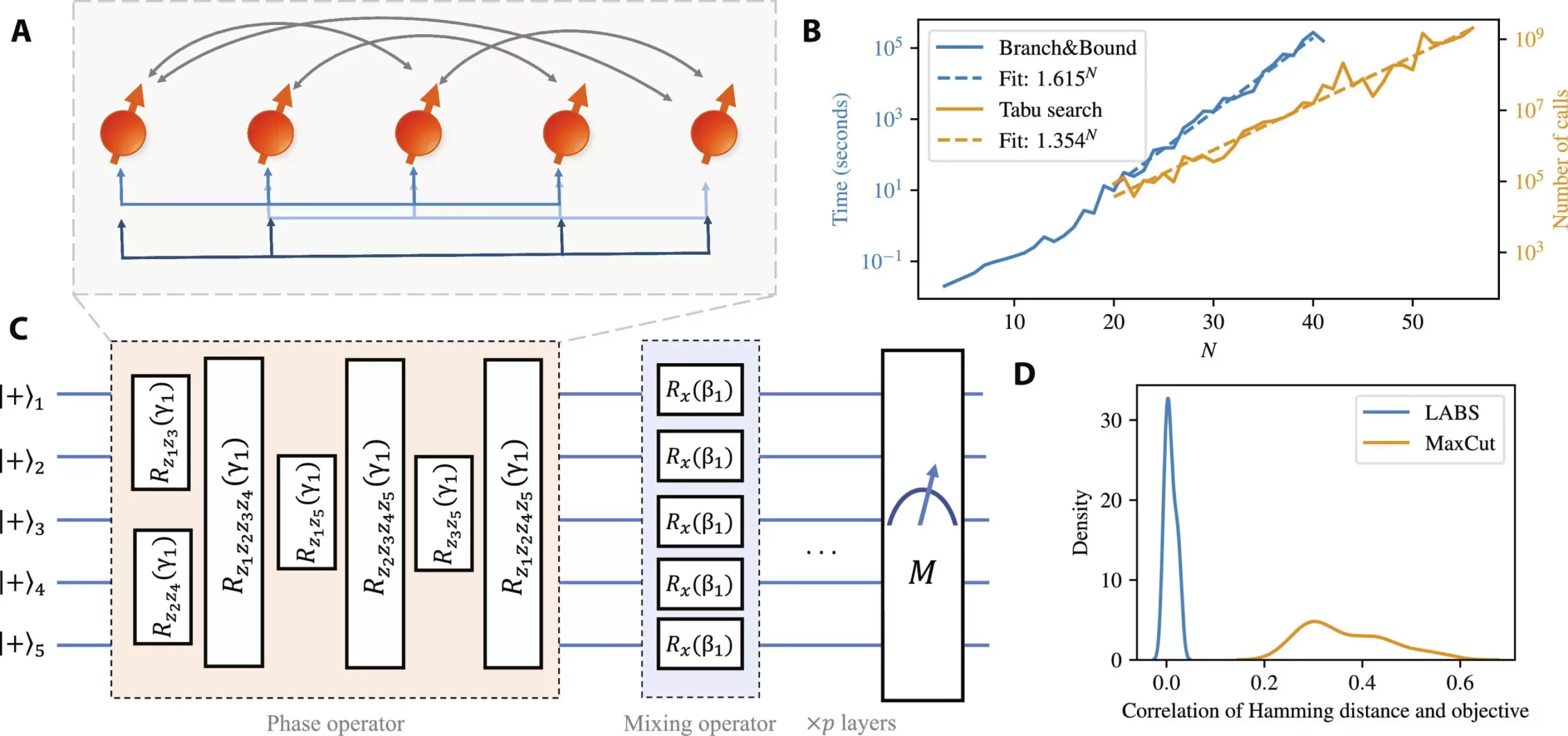A groundbreaking study published in Science Advances by researchers at JPMorgan Chase, the U.S. Department of Energy’s Argonne National Laboratory, and Quantinuum has unveiled a significant breakthrough in quantum algorithmic speedup. The study focused on the quantum approximate optimization algorithm (QAOA), a widely studied algorithm with applications in diverse fields such as logistics, telecommunications, financial modeling, and materials science.
Led by Marco Pistoia, head of Global Technology Applied Research at JPMorgan Chase, the research team set out to determine whether a quantum algorithm like QAOA could outperform classical methods while maintaining low implementation costs. By applying QAOA to the Low Autocorrelation Binary Sequences problem, which has implications in various areas including signal processing and cryptography, the team demonstrated that the quantum algorithm exhibited accelerated performance as the complexity of the problem increased.
To further evaluate the performance of the quantum algorithm in an ideal noiseless environment, JPMorgan Chase and Argonne’s collaboration resulted in the development of a quantum circuit simulator. Leveraging the immense computational power of the DOE petascale supercomputer Polaris at the ALCF, the team was able to conduct large-scale quantum circuit simulations to showcase the potential impact of high-performance computing on advancing quantum information science.
In a key milestone towards realizing the quantum speedup in algorithms, the researchers successfully implemented a scaled-down version of QAOA on Quantinuum’s System Model H1 and H2 trapped-ion quantum computers. By employing algorithm-specific error detection techniques, the team managed to mitigate the impact of errors on algorithm performance by an impressive 65%.
The successful collaboration between JPMorgan Chase, Argonne, and Quantinuum underscored the importance of partnership in driving quantum advancements. Ilyas Khan, founder and chief product officer of Quantinuum, emphasized the critical role played by the cutting-edge H-Series Quantum Computer, which enabled the execution of error-correcting and error-detecting experiments at a level of precision unmatched by other quantum computers.
The research represents a critical step towards achieving quantum advantage, with far-reaching implications for industries that rely on optimization algorithms. The findings highlight the promise of quantum computing in revolutionizing problem-solving capabilities and unlocking new possibilities for innovation across various sectors.


Leave a Reply